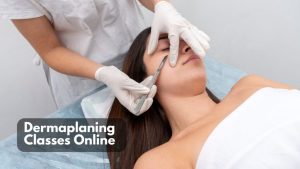Getting into pharmacy school can be challenging due to the limited slots available in many programs. According to studies, only 89% of online pharmacy school applicants get onboarded into pharmaceutical programs annually. Besides the few vacancies, most pharmacy schools online have rigorous admission requirements that many students fail to meet. In this post, our medical exam helpers elaborate on the qualification criteria for pharmacy school classes online, curriculum, and potential career paths. We also do online classes for students, taking notes and attending virtual lectures to ensure they succeed in their courses.
Pharmacy School Online Entry Requirements
Like medical and nursing programs, online pharmacy school has complex admission requirements. Students pursuing pharmacy online classes must satisfy the following prerequisites to gain automatic entry into a pharmacy school program:
- A minimum GPA score of 3.0 or 3.5
- At least a 415 to 430 PCAT score or equivalent standardized tests like GMAT, GRE, and DAT
- Personal statement explaining the reason for applying to online pharmacy school
- Recommendation letter from an experienced pharmacist or school professor
- Premed work experience
- Written essays detailing why students want to join a school
- Multiple-mini admission interviews (MMI)
- Extracurriculars in pharmacy like volunteering work, research, and shadowing
Select schools also require a biology, chemistry, physics, math, statistics, anatomy, physiology, or psychology degree.
Online Pharmacy School Curriculum
The online pharmacy school program has topics on pharmacy practice and pharmaceutical science. They’re covered in different semesters and accredited by the Utilization Review Accreditation Commission (URAC) to be high quality.
The following are the units in online pharmacy school:
Drug Information
Pharmacy students learn the drug types, including but not limited to antibiotics, antidepressants, stimulants, anxiolytics, and inhalants. This lesson also covers drug uses, development, and promotion. By the end, students can describe various drugs and provide drug information to patients and healthcare professionals.
Pharmaceutics
Pharmaceutics explains the concepts of medication dosages and compounding. Students learn to mix, combine, and alter sterile or nonsterile drug forms to produce specialized patient medication. In addition, the lesson explains how to determine the correct dosage forms for various patient conditions.
Pharmaceutical Calculations
Online pharmacy school teaches students to perform mathematical calculations for safe medication use. It explains using algebraic equations to determine drug concentrations, quantities, infusion rates, and solubility. Prospective pharmacists also learn the dosage measurement units such as grams, milligrams, and milliliters, plus special dosage measurement techniques like trituration.
Pathophysiology
Pathophysiology is a three-hour lesson that covers common diseases affecting the human body, such as diabetes, heart problems, hypertension, osteoarthritis, and more. It explores each condition, its development, and the organs it affects. The lesson also explains the pathways diseases follow to enter the human body and damage multiple organs and organ systems.
Pharmacy Law
This course explores the federal and state laws impacting pharmaceutical practice. It explains the ethical and legal principles pharmacists should apply in their daily activities and the framework that governs pharmacy practices. Course takers also get insights into the regulations that protect patient well-being and the legal procedures and terminologies in the U.S. legal system.
Nonprescription Therapy
Nonprescription therapy explains using dietary supplements and other over-the-counter (OTC) medications. It teaches pharmacists how to explain to patients the correct nonprescription drug use techniques while self-treating at home. Concepts here include conducting diagnostic tests, using glucometers, and smoking cessation products responsibly to treat common medical conditions.
Pharmacotherapy
The pharmacotherapy lesson is a series covered from the first to the last year of online pharmacy school. Each module explains unique concepts on the body system, disease states, and the chemical agents used to treat the diseases. The lessons also touch on the therapeutic management of patients with long-term disease states, toxicology, and pharmacogenomic concepts.
Potential Pharmacy Career Paths
After completing online pharmacy school, students must take the North American Pharmacist Licensure Examination (NAPLEX) and the Multistate Pharmacy Jurisprudence Examination (MPJE). Students who pass these exams can pursue careers in the following fields:
- Community pharmacy: Works in a conventional drug store, providing access to medications for various conditions and promoting safe medicine use
- Hospital Pharmacy: Works in a hospital, clinic, or nursing home, collaborating with other healthcare professionals to provide patient medication regimens and compound drugs.
- Ambulatory care Pharmacy: They provide mobile pharmaceutical services to remote areas, prescribing medications to patients with high risk of disease complications due to lack of access
- Industrial Pharmacy: They represent pharmaceutical companies and produces, packages, and markets pharmaceutical products. They’re also involved in the quality control of pharmacy goods.
- Regulatory Pharmacy: These professionals work in health boards like the FDA to ensure the safe and effective administration of drugs to patients.
Students can also specialize in pediatrics, nuclear, personal, poison control, and hospice pharmacy.
Get a Professional to Do Online Pharmacy School
Online pharmacy school offers the opportunity to earn a certificate, degree, master’s, or Ph.D., in pharmacy without attending physical classrooms. While some sections require in-person training, like lab practice, much of the coursework is in a virtual learning environment. Students with familial or work responsibilities can hire our online pharmacy class takers to take pharmacy classes.


